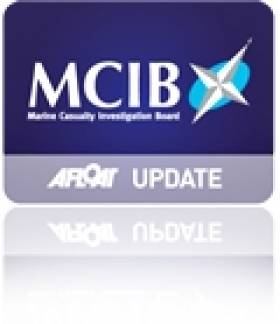Displaying items by tag: Dundalk Harbour
#MCIB - Investigators have reiterated the importance of water safety measures such as wearing a lifejacket and having a means of alert when on or near the water in the report into the death of a man in Dundalk Harbour in February last year.
As previously reported on Afloat.ie, the man was understood to have taken a small punt from the mudflats at Soldiers Point to reach a colleague requiring his aid on another boat on the afternoon of Saturday 12 February 2012, but went missing after he capsized near Dundalk Lighthouse.
The official report into the indecent by the Marine Casualty Investigation Board (MCIB) names the man as Stephen Fergus, who was making his way to assist his friend Pat O'Brien, whose boat was suffering engine trouble and was anchored on the north side of the estuary at Dundalk Harbour.
Fergus was reported missing after O'Brien became concerned as to his whereabouts. After an extensive search of the estuary by the emergency services, Fergus' body and the submerged punt were found later that evening by the Drogheda unit of the Irish Coast Guard.
The subsequent post-mortem recorded Fergus' death as by drowning.
With no witnesses to the incident that brought about his death, it is assumed that Fergus was in the process of either getting into the punt or transferring from the punt to his own boat when the tragedy occurred.
It was noted that the canvas cover on his boat has not been disturbed, indicating that he did not gain access to the vessel before the incident.
The report's analysis concludes that the strong tidal current at the time would have made it difficult for Fergus to manoeuvre the punt to transfer to his boat single-handedly.
In addition, the condition of the mudflats where the punt was tied off were found to be changeable over time, with the mud in parts "arduous to walk on".
But the key finding of the investigation was that Fergus was neither wearing a lifejacket nor had any means of communication on his person at the time of the incident.
Two lifejackets were found in his car, and it was noted that he had left his mobile phone at home, presumably in the hurry to assist his friend.
The MCIB recommended that all owners and operators of recreational craft should be aware and follow the Code of Practice for the Safe Operation of Recreational Craft.
The full report is available to download as a PDF below.





























































